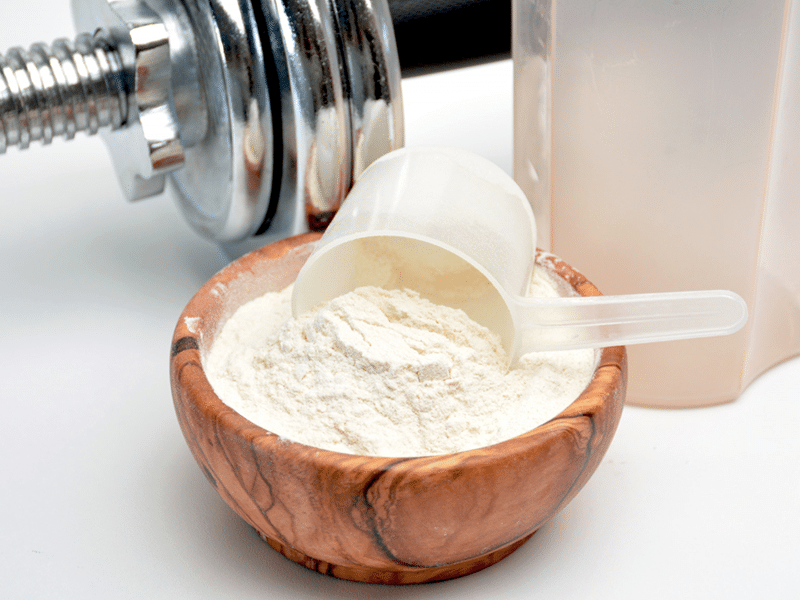Consumer Reports has issued updated findings on protein powder contamination, highlighting elevated lead levels and other heavy metals in popular protein powders and shakes sold across the United States. The investigation, originally released on 14 October 2025 and updated on 22 October 2025, underscores growing food safety concerns within the dietary supplement industry and points to ongoing regulatory gaps under current La FDA oversight.
Résumé de la mise à jour
The report identifies that more than two-thirds of the tested protein products contained lead levels exceeding Consumer Reports’ recommended daily limit of 0.5 micrograms. Subsequent updates incorporated manufacturer’s comments, clarified flavor-specific results, and corrected that several companies referenced testing performed by the National Sanitation Foundation (NSF), rather than the National Science Foundation.
Key Findings and Industry Response
The investigation found that plant-based protein powders contained significantly higher lead concentrations than dairy- or beef-based alternatives. Additional contaminants, including cadmium et inorganic arsenic, were detected in certain products, with some exceeding public health thresholds. Consumer Reports advised limiting consumption of most protein powders due to contamination risks, particularly for vulnerable groups such as children and pregnant individuals.
Among the products tested, Huel’s Black Edition et Naked Nutrition’s Vegan Mass Gainer were found to contain lead levels more than 1,200 percent above Consumer Reports’ recommended limit. Huel responded that its products undergo rigorous testing aligned with NSF thresholds.
Industry groups also reacted. The Natural Products Association described the report as alarmist and misleading, while the Council for Responsible Nutrition emphasized the need for context regarding product selection, consumer-use relevance, and derivation of proprietary thresholds. Both groups noted the absence of federal heavy metal limits for dietary supplements and expressed concern about potential misinterpretation of testing results.
Pourquoi c'est important
The findings spotlight ongoing challenges related to heavy metal contamination in dietary supplements and highlight the absence of enforceable federal standards for lead, cadmium, et arsenic. For manufacturers, the report raises compliance risks and reinforces the need for robust self-regulation, transparent testing protocols, and clear communication with consumers to mitigate safety concerns and regulatory scrutiny.
Qui est concerné?
This update is relevant for regulatory affairs teams, quality assurance professionals, product safety leaders, toxicology specialists, dietary supplement manufacturers, and compliance teams involved in ingredient sourcing, testing, and FDA-aligned self-regulation.
Prochaines étapes
Manufacturers should review formulation data and current testing protocols to ensure heavy metal levels remain within acceptable thresholds. Engaging accredited third-party certifiers such as NSF can support validation of product safety and strengthen consumer trust.
These findings also underscore the value of proactive regulatory intelligence. RegASK helps organizations monitor evolving global supplement safety expectations and anticipate potential compliance risks.
RegASK is a leading agentic AI regulatory intelligence and workflow orchestration platform that empowers global organizations in highly regulated sectors, including consumer products and life sciences, to proactively navigate complex regulatory landscapes. By combining advanced Agentic AI with experts in the loop, RegASK delivers timely predictive actionable insights and end-to-end automation, streamlining compliance processes, mitigating risks, and accelerating market access across more than 140 countries.
Apprendre encore plus ou réservez une démo maintenant.
FAQ
What contaminants did Consumer Reports identify in protein powders?
The report identified lead, cadmium, et inorganic arsenic in several protein powders, with many products exceeding Consumer Reports’ recommended limits.
Why do plant-based protein powders show higher contamination levels?
According to the findings, plant-based products exhibited higher lead concentrations compared to dairy- and beef-based powders, though the report does not provide specific reasons for this difference.
Are there federal limits for heavy metals in dietary supplements?
No. The report notes that there are no enforceable federal limits for heavy metals in dietary supplements, leaving manufacturers responsible for self-regulation under FDA guidelines.
How can RegASK support companies responding to contamination risks?
RegASK can help manufacturers track global regulatory expectations for supplement safety, monitor emerging contamination concerns, and strengthen compliance through AI-enabled intelligence and automated workflows, ensuring rapid response to regulatory developments.
Abonnez-vous aux dernières actualités réglementaires
Newsletters personnalisées
Informations sectorielles pertinentes
Accédez aux conseils d'experts

